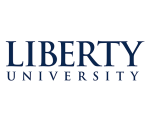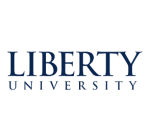Liberty University PHIL 201 Module Week 4 Study Guide Lesson 10 complete solutions answers A+
- From Philosophy, General Philosophy

- Kmgina
- Rating : 186
- Grade : A+
- Questions : 0
- Solutions : 462
- Blog : 1
- Earned : $47433.48

Liberty University PHIL 201 Module Week 4 Study Guide Lesson 10 complete solutions correct answers A+
Study Guide Lesson 11
Study Guide Lesson 12
Study Guide: Lesson 10
What Is Epistemology? And What Is Knowledge?
Lesson Overview
With this lesson, we begin a new unit on epistemology, which is the philosophical study of knowledge claims. In this first lesson on epistemology, Dew and Foreman discuss some of the basic issues raised in the study of epistemology and then discuss the nature of knowledge itself. They consider questions such as, “What do we mean when we say we know something?” “What exactly is knowledge?
Tasks
View and take notes of the presentation, “What is Knowledge?”
- Describe the 3 different ways we use the term know.
- Explain the traditional definition of knowledge from Plato.
- Know what each aspect of the traditional definition means.
Read Chapters 1 (“What is Epistemology?”) and 2 (“What is Knowledge?”) of How Do We Know?” As you do, make sure you understand the following points and questions:
- What are the kinds of questions arise in the study of epistemology?
- Know the kinds of questions that preoccupy epistemologists.
- Know the basic reasons why the study of epistemology is important.
- What are the different ways that the word “know” might be used?
- How did Plato define knowledge?
- Know the difference between true opinion and knowledge.
- What are some of the basic problems/concerns with JTB?
- What is the Gettier Problem?
- What are some of the common strategies for resolving the Gettier Problem?
- Is JTB of any value to us after the Gettier Problem?
Terms
Make sure you can explain the following terms and concepts:
· Epistemology
· Traditional Definition of Knowledge
· Justified, True, Belief
· Gettier Problem
· Necessary Condition
· Sufficient Condition
· Knowledge by Acquaintance
· Knowledge as Competency
· Propositional Knowledge
· True Opinion
· Belief
· Justification
· Truth
· Reliabilist Accounts of Knowledge
Study Guide: Lesson 11
Acquiring Knowledge
Lesson Overview
In our introductory lesson in epistemology, we defined knowledge as “justified true belief.” In our last lesson, we discussed the “truth” aspect of this definition. In this lesson, we want to examine the “belief” element. Knowledge begins by adopting beliefs and one question philosophers have deliberated about for centuries has to do with the source of our beliefs: where do they come from? That is the subject of our reading and our presentation. There is some overlap between these, but consider one as expounding upon the other.
Tasks
View and take notes on the presentation, “How are Beliefs Acquired?”
· According to Plato, how do we learn things?
· How did Descartes arrive at the existence of God? Matter?
· Explain Kant’s combination of empiricism and rationalism and his radical conclusion.
Read and take notes on Chapter 3 of How Do You Know? A Short Introduction to the Issues of Epistemology, “Where Does Knowledge Come From?” As you do, consider the following questions and points:
· List the 5 sources for knowledge.
· Explain Plato’s doctrine of the forms and the 2 worlds, and why Plato was hesitant to build a theory of knowledge on the physical world.
· How do we gain true knowledge according to Plato?
· Explain Plato’s divided line.
· What was Descartes searching for and how did he conduct that search?
· Why can Descartes be certain about is existence?
· What is the distinction between hard and soft empiricism?
· How does the epicurean view of reality affect their epistemology?
· Contrast the deductive method with Bacon’s inductive (scientific) method.
· Explain Locke’s empiricism including his division of simple and complex ideas.
· Explain Hume’s radical empiricism including Hume’s Fork and the conclusion he reaches based on the egocentric predicament.
· Why are epistemologists suspicious of testimony as a source for knowledge?
· Why is divine revelation an important source of knowledge about God?
· Is faith properly understood as a source of knowledge? Why or why not?
Terms
Make sure you fully understand the following terms and concepts:
· Rationalism
· A priori
· Form
· World of Being
· World of Becoming
· Divided Line
· Intuition
· Empiricism
· Epicureanism
· Bacon’s Inductive Method
· Tabula Rasa
· Simple Idea
· Complex Idea
· Hume’s Fork
· Relations of Ideas
· Matters of Facts
· Egocentric Predicament
· Faith
· Belief
· Recollection
· Cogito Ergo Sum
· Ontological Argument for God
· Categories of Understanding
· Noumena
· Phenomena
Study Guide: Lesson 12
What Is Truth?
Lesson Overview
In this lesson, we turn our attention to the issue of truth and ask two basic questions: what is truth? and how do we find it? We discuss whether or not anything is actually true and then look at traditional ways that truth has been defined: correspondence, coherentism, and pragmatism. We will examine each of these theories and how each relates to truth.
Tasks
View and take notes of the presentation, “What is Truth?”
- Know the strengths and criticisms of the 3 different truth theories.
- Be able to answer the criticisms of the correspondence theory.
Read Chapter 4 of How Do We Know? An Introduction to Epistemology. As you do, consider the following questions and points:
- Why do postmodern anti-realists reject truth claims?
- What is wrong with the postmodern rejection of truth claims?
- What are the 4 reasons Dew and Foreman give in favor of making truth claims?
- What are the differences between a definition of truth and a test for truth?
- Which theory of truth has enjoyed the most historical support?
- What is a coherentist theory of truth?
- What is wrong with coherentism as a theory of truth?
- What epistemic value does coherentism have in helping us identify truth?
- What is a pragmatist theory of truth?
- What is the primary concern for pragmatists?
- What kinds of epistemological problems does pragmatism face?
- What does the correspondence theory of truth say about the nature of truth?
- Why is a correspondence theory of truth thought to be pretheoretic?
- How is a correspondence theory of truth supported by biblical Christianity?
- How does the correspondence theory of truth relate to modern science?
- What value, if any, do coherentism and pragmatism have as tests for truth?
Terms
Make sure you can explain the following terms and concepts:
· Correspondence Theory
· Coherence Theory
· Pragmatic Theory
· Anti-Realism
· Postmodern Thought
· Definitions of Truth
· Solipsism
· Tests for Truth
· Web Metaphor
· Relativism
· Pragmatism and the Law of Non-Contradiction
· Pretheoretic Intuitions
[Solved] Liberty University PHIL 201 Module Week 4 Study Guide Lesson 10 complete solutions answers A+
- This Solution has been Purchased 1 time
- Submitted On 14 Oct, 2016 08:38:52

- Kmgina
- Rating : 186
- Grade : A+
- Questions : 0
- Solutions : 462
- Blog : 1
- Earned : $47433.48


Liberty University ENGL 101 Mindtap 6 assignment complete solutions correct answers updated

Liberty University ENGL 101 Mindtap 2 assignment complete solutions correct answers updated

BUSI 330 Quiz 7 Liberty University Complete Answers

ECON 213 Problem Set ch. 9 Liberty University Complete Answers

ECON 213 InQuizitive ch. 13 Liberty University Complete Answers
The benefits of buying study notes from CourseMerits

Assurance Of Timely Delivery
We value your patience, and to ensure you always receive your homework help within the promised time, our dedicated team of tutors begins their work as soon as the request arrives.
Best Price In The Market
All the services that are available on our page cost only a nominal amount of money. In fact, the prices are lower than the industry standards. You can always expect value for money from us.


